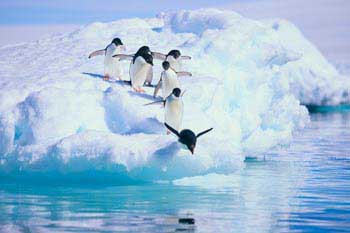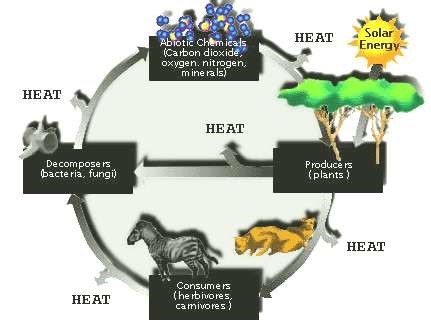WORLD BIODIVERSITY DAY 2021
"If we pollute the air, water and soil that keep us alive and well, and destroy the biodiversity that allows natural systems to function, no amount of money will save us." -David Suzuki
Themes
- 2021 - We’re part of the solution
- 2020 - Our solutions are in nature
- 2019 - Our Biodiversity, Our Food, Our Health
- 2018 - Celebrating 25 Years of Action for Biodiversity
- 2017 - Biodiversity and Sustainable Tourism
- 2016 - Mainstreaming Biodiversity; Sustaining People and their Livelihoods
- 2015 - Biodiversity for Sustainable Development
- 2014 - Island Biodiversity
- 2013 - Water and Biodiversity
- 2012 - Marine Biodiversity
- 2011 - Forest Biodiversity
- 2010 - Biodiversity, Development and Poverty Alleviation
- 2009 - Invasive Alien Species
- 2008 - Biodiversity and Agriculture
- 2007 - Biodiversity and Climate Change
- 2006 - Protect Biodiversity in Drylands
- 2005 - Biodiversity: Life Insurance for our Changing World
- 2004 - Biodiversity: Food, Water and Health for All
- 2003 - Biodiversity and poverty alleviation - challenges for sustainable development
- 2002 - Dedicated to forest biodiversity
We are part of the solution
As the global community is called to re-examine our relationship to the natural world, one thing is certain: despite all our technological advances we are completely dependent on healthy and vibrant ecosystems for our water, food, medicines, clothes, fuel, shelter and energy, just to name a few.
This year 2021 the theme is “We’re part of the solution”. The slogan was chosen to be a continuation of the momentum generated last year under the over-arching theme, “Our solutions are in nature”, which served as a reminder that biodiversity remains the answer to several sustainable development challenges.
From nature-based solutions to climate, health issues, food and water security, and sustainable livelihoods, biodiversity is the foundation upon which we can build back better. That is the main message from the Convention on Biological Diversity (CBD), key international instrument for sustainable development. You can find in its website promotional materials for your own campaign!
Things you can do to conserve biodiversity
- Avoid single-use plastics like plastic straws, coffee cups, plastic cutlery, take out containers or plastic water bottles
- Reduce or eliminate pesticides and fertilizer
- Reduce your meat consumption
- Eat and purchase seasonal foods
- Buy local foods
- Buy organic foods
- Reduce your food waste
- Compost your food scraps
International Day for Biological Diversity 2021: Secretary-General's message
Here are a few important points.
- "A healthy planet is critical for achieving the Sustainable Development Goals.
- We are depleting resources faster than nature can replenish them.
- Covid-19 has further reminded us of the intimate relationship between people and nature.
- The current crisis provides an opportunity to recover better.
- We need to protect nature, restore ecosystems and establish a balance in our relationship with the planet.
- Everybody has a part to play.
- Sustainable lifestyle choices are the key.
- On this International Day for Biodiversity, let us all be part of the solution."
On this day, thousands of people from across the world participate by celebrating and taking action to conserve biodiversity. Here are some quotes that you can share on your WhatsApp, Instagram, Facebook stories to spread awareness.
This year’s theme is in fact in continuation with the momentum generated in 2020. Last year’s theme was, “Our solutions are in nature." The main idea behind these themes is to convey to people that conservation and rebuilding of bio diversity can help mankind find solutions to things as serious as climate change, health issues. The celebration and awareness campaigns of the day this year will only be done virtually due to the ongoing coronavirus pandemic.
According to the UN, three-quarters of the Earth's land-based environment and about 66 % of the marine environment have been altered by human activity, and the latest report submitted by the Intergovernmental Science-Policy Platform on Biodiversity and Ecosystem Services (IPBES), states that more than one million animal and plant species are at risk of extinction.
Only once we realise that we are part of the solution will we be able to put a stop to the damage that we are causing to nature.
Biodiversity: The key to curbing pandemics
According to the UN, more than 3 billion people depend on marine and coastal biodiversity for their livelihoods, whilst another 1.6 billion depend on forests. The conservation of the Earth's species no longer constitutes a mere altruistic dimension; it is vital to ensuring our very survival.
In fact, pandemics such as the latest COVID-19 (coronavirus) outbreak force us to reconsider the protective role that biodiversity plays in the future of humankind, since its many advantages result in one fundamental benefit: protection from infectious diseases.
There is evidence to suggest that the loss of biodiversity could increase the number of cases of zoonosis, in other words, diseases transmitted from animals to humans. In fact, 70 % of emerging infectious diseases in recent years have stemmed from zoonosis. Since several species are often involved in the spread of infection, the loss of biodiversity and extinction of many of those species increases the chances of the pathogens reaching human beings.
Therefore, whilst the WHO asks us to prepare for possible unexpected scenarios, scientists insist that surrounding ourselves with healthy, functional and species-rich ecosystems would be best for humankind and for the stability of our planet.
Climate change remains a major threat to biodiversity
Yet, despite the fact that biodiversity is vital to human survival, it is us as humans who are responsible for its greatest threat—climate change.
There are several species that have already suffered irreversible consequences or are just about to do it:
- Three species disappear every hour

- From 100 to 150 species disappear every day
- From 15.000 to 80.000 species disappear every year
These figures, despite their large size, are no more than figures. But if we picture them on a familiar face, they can make us more aware of what we are losing:
- The polar bear population in Canada has decreased by 22% in the last thirty years as a result of climate change. The melting of the poles causes a decrease in food for hunting and an increase of the distances sometimes impossible to swim. Their malnutrition prevents them from spending the winter with guarantees of survival.
- Up to 74 species of cloud forest frogs have already disappeared due to the environmental dryness caused by global warming. These amphibians need specific humidity conditions for incubating their eggs and this conditions are no longer happening in many ecosystems.
 The Adelie penguin population in Antarctica decreased over the last twenty years from 320 pairs to 54 pairs. Why? The increase of 5,5 0C in that area over the last half century has forced the massive exodus of the krill, a kind of crustacean that represents their main food source, towards colder waters these penguins cannot easily reach.
The Adelie penguin population in Antarctica decreased over the last twenty years from 320 pairs to 54 pairs. Why? The increase of 5,5 0C in that area over the last half century has forced the massive exodus of the krill, a kind of crustacean that represents their main food source, towards colder waters these penguins cannot easily reach.
- The flycatcher, a species of bird that lives in the Netherlands, has experienced a 90% population decrease in a few decades. Once again, the cause is a change of behaviour amongst his food supply caused by climate change. The young birds in this species are usually born when caterpillars hatch. With the gradual temperature raise, caterpillars began to anticipate their hatching a fortnight, so when flycatcher babies are born, their parents can’t find caterpillars to feed them.
This year, it is more important than ever that every one of us stands up and says, "We're part of the solution!"
So Go Green , Protects your Regional Biodiversity , Stay Long Live On earth . Oh Yes share with us your memmorable journey on today's World Biodiversity Day Celebration .
Your unique contribution would be the greatest Benifits of World Environment.
FOLLOW ME ON












0 Comments